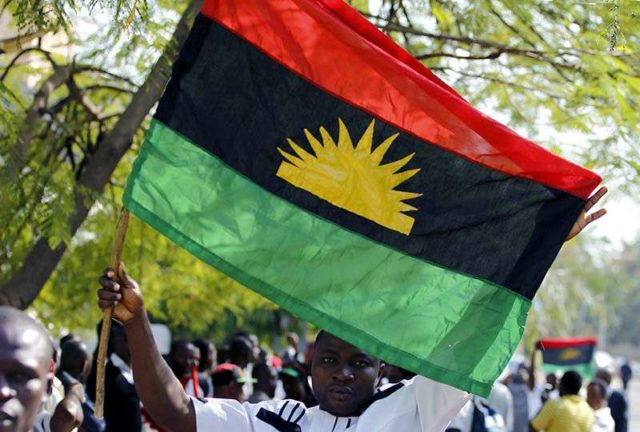Unprecedented US strikes have wrecked Iran’s nuclear program, Defense Secretary Pete Hegseth said Sunday as Washington sought to assess what remained of the three targeted sites.
The surprise strikes threaten to deepen conflict in the Middle East after Israel launched a bombing campaign against Iran, with Tehran vowing to retaliate against US involvement.
But the United States said President Donald Trump wanted peace and urged Iran to end the conflict after strikes on a key underground uranium enrichment site at Fordo, along with nuclear facilities in Isfahan and Natanz.
“We devastated the Iranian nuclear program,” Hegseth told a Pentagon press briefing, adding that the operation “did not target Iranian troops or the Iranian people.”
Trump “seeks peace, and Iran should take that path”, Hegseth said. “This mission was not, and has not been, about regime change.”
READ ALSO:UK ‘Was Informed Of US Strikes’ On Iran, Plans Evacuating Briton Out of Israel
Standing beside Hegseth, top US general Dan Caine said that “it would be way too early for me to comment on what may or may not still be there.”
“Initial battle damage assessments indicate that all three sites sustained extremely severe damage and destruction,” he told reporters.
– Protests in Tehran –
People gathered in the center of Tehran to protest against US and Israeli attacks, waving flags and chanting slogans, state TV showed.
Trump claimed total success for the operation in an address to the nation hours after the attack, and Vice President JD Vance followed up on Sunday morning.
“We know that we set the Iranian nuclear program back substantially last night, whether it’s years or beyond,” he told ABC.
READ ALSO:US Struck Iran With B-2 Bombers, Submarine-launched Missiles – Top US General
“We’re not at war with Iran — we’re at war with Iran’s nuclear program,” he added. “The president took decisive action to destroy that program last night.”
In Tehran, AFP journalists said the roar of aircraft flying over the city was heard repeatedly for the first time since Israel’s initial attacks.
The UN’s International Atomic Energy Agency said it had not detected any increase in radiation levels at the nuclear sites and Tehran said Sunday there were no signs of contamination.
Iranian Foreign Minister Abbas Araghchi told reporters in Istanbul the United States and Israel had “crossed a very big red line,” asserting Iran would continue to defend itself “by all means necessary.”
Israeli Prime Minister Benjamin Netanyahu hailed the US strikes, saying Trump’s decision to “target Iran’s nuclear facilities with the awesome and righteous might of the United States will change history.”
READ ALSO:Iran Nabs 22 Suspected Israeli Spies Amidst Escalating Conflict
The Israeli military was also checking the results of the US raid on the deeply buried nuclear facility in Fordo, with a spokesman saying it was “too soon” to know if Iran had removed enriched uranium from the site.
The main US strike group was seven B-2 Spirit bombers flying 18 hours from the US mainland to Iran with multiple aerial refuelings, Caine said.
– Global concern –
In response to the US attack, Iran’s armed forces said they targeted multiple sites in Israel including Ben Gurion airport, the country’s main international gateway near Tel Aviv.
Israeli rescuers said at least 23 people were wounded.
In Jerusalem, Claudio Hazan, a 62-year-old software engineer, said he hoped the US intervention would hasten an end to the Iran-Israel war.
READ ALSO:Israel-Iran War: Stranded Nigerians Cry For Help From Underground Shelters
“Israel by itself would not stop… and it would take longer,” he said.
Israel said it had launched fresh strikes on western Iran and in Qom, south of Tehran. Iran’s official IRNA news agency reported four Revolutionary Guard members were killed in strikes on a military base in the city’s north.
The Israeli military said it had “struck missile launchers ready to launch toward Israeli territory, soldiers in the Iranian Armed Forces, and swiftly neutralized the launchers that launched missiles toward Israeli territory.”
Iran’s Shargh newspaper reported that a “massive explosion was heard” Sunday in Bushehr province, home to Iran’s only nuclear power plant.
Iranian news agencies also reported strikes in Yazd province.
The United Arab Emirates, Qatar and Oman, which had been mediating Iran-US nuclear talks, criticized the US move and urged de-escalation.
READ ALSO:UK Joins Other Nations In Pulling Embassy Staff From Iran
The European Union called on all sides “to step back,” while stressing Iran must not be allowed to develop nuclear weapons.
The Iranian foreign minister said he would travel to Moscow for talks with Russian President Vladimir Putin on Monday.
Following his address, Trump warned Iran against retaliation. Iran and its proxies have previously attacked US military bases in Iraq and elsewhere in the region.
Iran’s Huthi allies in Yemen on Sunday repeated their threat to resume attacks in the Red Sea if Washington joined the war, saying they were ready to target US ships and warships.
The US president had stepped up his rhetoric against Iran since Israel first struck the country on June 13, repeating his insistence it could never have nuclear weapons.
Tehran denies seeking an atomic bomb. On Saturday, President Masoud Pezeshkian said Iran’s right to pursue a civilian nuclear program “cannot be taken away… by threats or war.”
